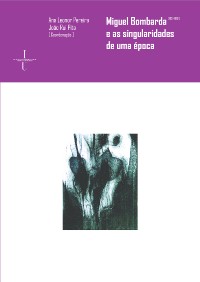Please use this identifier to cite or link to this item:
https://hdl.handle.net/10316.2/32310| Title: | A consolidação do poder médico: a medicina social nas teses da escola médico-cirúrgica de Lisboa (1900-1910) | Authors: | Garnel, Rita | Issue Date: | 2006 | Publisher: | Imprensa da Universidade de Coimbra | Journal: | http://hdl.handle.net/10316.2/2561 | Abstract: | In A Biologia Social. Discurso inaugural do anno academico.1900-1901, Miguel Bombarda
wrote that society was an organism and sociology no more than the extension of biological sciences. This
statement was the logical corollary of a thought that had insisted in the naturalization of individual and
social behaviours and attitudes during the nineteenth century, thus legitimising the intervention of doctors in
every field. This lecture aims at understanding how the increasing ‘medicalisation’ of society was done, i.e.,
how attention was transferred from illness to health, and how medicine and doctors built and consolidated
their knowledge and power, based on a hygienist model focused on prevention, which had its origin in the
eighteenth century. This new power had multiple strategies and fought several battles against other powers
and other essential knowledge in order to build a project that aimed at totally (re) ordering society.
One of the dimensions of medical power consolidation can be undoubtedly found in the reproduction
of medico-social sets of ideas, exemplarily illustrated by the inaugurating dissertations of medico-surgical
schools. The period chosen to the analysis of these dissertations (1900-1901) corresponds to a decade when
Social Medicine could already vindicate an increasing audience among public opinion and the State. The
fact is that the political and social credit reached by certain professors of the Medico-Surgical School, whose
opinion and work the theses reproduce, cannot be explained by their scientific weight. It is important
to understand that if the convincing capacity of the doctors’ ideas and their reception is mainly due to
the real and increasing efficacy of medicine and new medical techniques, it also has to be understood as
the consequence of transformations of the State to which doctors and the institutions of public health
belong, by the capacity of professional organisation and, mainly, by the importance of intellectual power of
contemporary societies. For this reason, doctors’ actions and words were not restricted to the scientific field,
which took advantage of the efficacy of doctors’ philosophical, political, social and aesthetical intervention.
Isn’t that the reason why a congress about ‘Miguel Bombarda and the singularities of an epoch’ is taking
place one hundred years later? Em A Biologia Social. Discurso inaugural do anno academico.1900-1901, Miguel Bombarda afirmou que a sociedade era um organismo e a sociologia nada mais era do que a extensão das ciências biológicas. Esta afirmação era o corolário lógico de um pensamento que, ao longo do século xix, insistira na naturalização dos comportamentos e atitudes, individuais ou sociais, o que legitimava a intervenção do médico em todos os campos. Perceber como a crescente medicalização da sociedade foi conseguida, isto é, como se deslocaram as atenções da doença para a saúde, e como a partir de um modelo higienista, centrado na prevenção, iniciado ainda em Setecentos, a medicina e os médicos construiram e consolidaram o seu saber e o seu poder é o objectivo desta comunicação. As estratégias deste novo poder foram múltiplas e as lutas com outros poderes e outros saberes essenciais à construção de um projecto que visava um (re)ordenamento total da sociedade. Uma das dimensões da consolidação do poder médico encontra-se, indubitavelmente, na reprodução do ideário médico-social que as dissertações inaugurais das escolas médico-cirúrgicas exemplarmente ilustram. O período escolhido para a análise destas dissertações (1900-1901) corresponde a uma década em que a Medicina Social podia já reivindicar crescente audiência junto da opinião pública e junto do Estado. É que, o crédito social e político alcançado por alguns dos professores da Escola Médico-Cirúrgica, cujas opiniões e trabalhos as teses reproduzem, não se explica apenas pelo seu peso científico. Há que perceber que a capacidade de convencimento e o acolhimento das ideias, expendidas pelos médicos, deve ser, em primeiro lugar, explicada pela eficácia real e crescente da medicina e das novas técnicas médicas, também deve ser compreendida como efeito das transformações do Estado, a que os médicos e as instituições de saúde pública pertencem, pela capacidade de organização profissional e, sobretudo, pela importância do poder intelectual nas sociedades contemporâneas. Por isso a acção e a palavra dos médicos se não esgotou no domínio científico, que, por seu lado, colheu benefícios da eficácia da intervenção filosófica, política, social e estética dos médicos. Não será, também, por isso que se realiza, cem anos depois, um congresso sobre «Miguel Bombarda e as singularidades de uma época»? |
URI: | https://hdl.handle.net/10316.2/32310 | ISBN: | 978-989-26-0362-9 (PDF) | DOI: | 10.14195/978-989-26-0362-9_8 | Rights: | open access |
| Appears in Collections: | Miguel Bombarda e as singularidades de uma época: 1851-1910 |
Files in This Item:
| File | Description | Size | Format | |
|---|---|---|---|---|
| miguel_bombarda_e_singularidades_de_uma__poca__2006__garnel.pdf | 1.01 MB | Adobe PDF |  |
Items in DSpace are protected by copyright, with all rights reserved, unless otherwise indicated.
